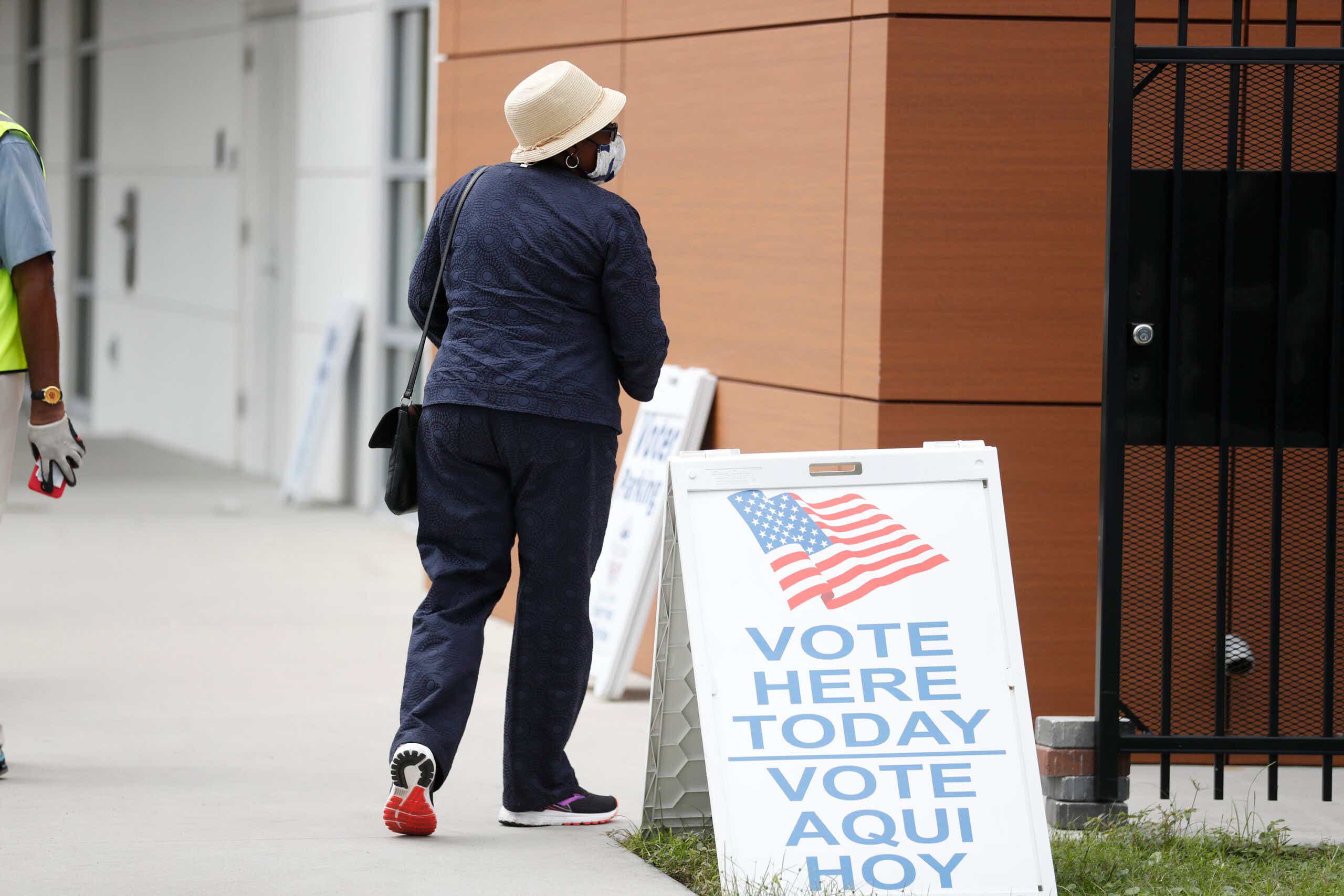As we head into the final day of the 2020 presidential campaign, many election observers are already weighing the possible outcomes. Though Americans have traditionally become accustomed to finding out the winner on Election Day, the chances of a delayed result have gone up this year because of the coronavirus pandemic and the anticipated influx of mail-in ballots in states, some of which won’t be counted until the day of the election.
Despite these uncertainties, CNN political analyst Julian Zelizer and Henry Olsen, a senior fellow at the conservative Ethics and Public Policy Center outlined the three main scenarios that could come into play on Tuesday. This comes as President Trump reportedly prepares to declare a premature victory if he takes an early lead, despite uncounted ballots that could ultimately lead to a loss. Democratic presidential nominee Joe Biden later responded to the report, saying he would not let the president “steal this election.”
SCENARIO 1: Biden has a clear win.
If state and national polls prove accurate, Biden will be on track to win the White House. According to a final national NBC News/Wall Street Journal poll, Biden leads the president nationally by 10 points among voters.
If election night turns out to be a landslide for Biden, Olsen estimated that networks won’t have to wait for results from states like Colorado or Arizona to call the race on Election Day and voters should have a pretty good idea that Biden is the winner that night.
In this case, Zelizer said this means the former vice president carried some significant states like North Carolina, Georgia and Texas.
SCENARIO 2: Trump pulls another win.
Under this scenario, the president’s support has been underrepresented in public polling and election analysts suffer another embarrassing miss. In addition to early voting breaking records, Olsen said this means Election Day turnout “smashes all expectations.”
Zelizer said doesn’t expect the president to win by a landslide but if he does pull another surprise victory, it will be by a narrow margin, with key swing states like Pennsylvania and Wisconsin going his way.
But this would be considered quite an upset. FiveThirtyEight shows the president currently with a 44 percent approval rating, which is slightly below the 50 percent or higher approval rating that typically makes the president a safe bet for reelection.
SCENARIO 3: The election doesn’t immediately produce a clear winner.
Zelizer believes this is the most likely scenario, saying he isn’t expecting to know until Tuesday night or Wednesday morning — regardless of who wins. With so many expected absentee ballots, he said viewers need to be patient and “need to just wait for the numbers.”
“My main disposition is caution and I think the most important thing — which is very hard for reporters given how election night is structured — is to avoid starting to tell stories about the data as it comes in until we actually have a winner,” he said.
SCENARIO 4: The election is contested.
If the election’s closer than people think and neither candidate secures the 270 electoral votes to win the White House, Zelizer said things could then get pretty ugly, with Tuesday night becoming “basically the opening night of a multi-week political battle.” Both campaigns have prepared for such a fight, with each amassing robust legal teams to prepare for post-Nov. 3 disputes, in addition to monitoring Election Day activity and ballot counting.
But Olsen doesn’t believe this potential scenario would necessarily turn into a Bush v. Gore situation. In the 2000 case, the U.S. Supreme Court reversed a Florida Supreme Court request for a selective manual recount of that state’s presidential election ballots. The 5-4 decision effectively awarded Florida’s 25 votes in the electoral college — and the election itself — to former President George W. Bush.
Olsen said if ballots are challenged it wouldn’t just be in one state like Florida. He believes if ballots are challenged in one state, they could be challenged in others, leading to multiple lawsuits.
“In Florida, it was very simple — we have one thing we’re assessing, the validity of the recount against one standard — equal protection,” he said. “That won’t be the case in a close election.”
But Olsen said that the Supreme Court would be more reluctant to get involved this time around, emphasizing that the high court is much more politicized now than it was two decades ago. He added that it would be very easy for the conservative-leaning court to join in on a decision pointing to a 19th-century law that would force Congress to step in to determine the winner.
“I would think [Amy] Coney Barrett will not want to be known as the justice whose first important decision was to give the presidential election to the man who appointed her,” he said, referring to the president’s newest Supreme Court justice.
None of these scenarios are of course guaranteed, but Olsen urged Americans to “have faith” in the electoral system, saying it’ll work the way it’s designed to.
“There really isn’t significant voter suppression and there really isn’t significant voter fraud,” he said. “And there’s really no lever for Donald Trump to reach in or the Democrats to reach in and steal an election — the system is just too complex and decentralized for that.”
Written and reported by senior writer Tess Bonn.









